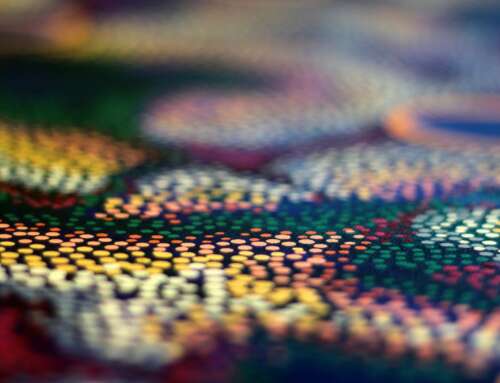
Pixabay Images
Trust is the foundation of a successful relationship. It is the first element in the Relationship Quotient (RQ). Trust is the belief that a person will not put their interests ahead of yours. Without trust there can be no growth, no emotional healing and no peace. Trust is an act of honesty and courage.
We seek out trust. We seek it in our leaders, we seek it in each other and we seek to find it in ourselves. Trust is the cradle of security and the foundation of generous care for one
another.
Trust promotes authenticity. It is the bedrock belief that this person can be relied on, depended on and trusted. Trust frees us to play, grow, be creative and be ourselves. In all relationships there are pivotal moments when trust is tested. These can destroy or strengthen a relationship depending on how we manage these challenges.
These challenges rarely appear alone but more commonly come as a cluster. Building up trust enables us to ride through the rough patches in a relationship.
Where there is no trust there is no future. Instead blame and shame replace trust and become the weapons of mass disconnection. Blame and shame cause subterfuge and resentment. We can end up not trusting anyone, feeling lonely or engaging in self- destructive acts. Being able to trust one another frees us to be our true selves.
All of us have the capacity to trust. Trust is the gift we give when we truly connect with others. It is the basis of true friendship and real intimacy. It is giving for the relationship
and not giving into doubts and fears.
The pathway to trust often begins with tentative steps. People are wise to be careful and alert. Our ancestors had to work out who to trust, who was a friend and who was a foe.
It always seems that we should be careful before placing our trust in someone. To blindly trust others is to risk being duped, damaged or hurt however, to not trust others is to be lonely, anxious and insecure.
To shift from wariness to trust is a courageous choice. We are all in the care of one another. We cannot live alone. We have no choice about that. What we do have a choice about is the quality of that care.
Co-operators give more than competitors in the long term. Competitors give conditionally. You may win the odd battle through competition but you won’t win a good life because you inhibit giving.
Animals who engage in hierarchical war-like battles experience victories but have shorter and less healthy lives. Conflict creates stress as well as wounds. It takes from one another and gives nothing.
In sports, teams of champions are often not as successful as champion teams. The increased levels of co-operation in the champion teams eventually shows though as
the sum is greater than the parts.
Our ancestors may have survived the odd scrap though competition but it was the people who were able to cooperate and trust who lived well in tribes and that is why we are here today. Our ancestors trusted people.
We are at our happiest when we are connected and give to others. Trust is a crucial element of love. The tentative steps of early trust involve reciprocity. One person gives trust and the other proves themselves to be trustworthy. Over time this builds into a pattern. A pattern that is relied upon but it is a pattern that doesn’t begin unless someone begins it.
Someone has to be brave enough to give trust in order for the pattern to begin. It is an act of bravery that in effect says, ”you could hurt me or take advantage of me but I am trusting you to protect and care for me.” It is not an act of conditional trade but instead, a decision to create powerful engagement in a relationship without conditions.
Meaningful human lives involve being honest, having true friends, and having opportunities to express our talents, to find meaningful work, to create and live among beautiful things and to live cooperatively in surroundings where we trust each other. This frees us to live in peace with ourselves and others.
When we are hurt or harmed, there is a choice to either retaliate or repair.
We live in a world where retaliation is often sought. This is despite retaliation being the cause of more hurt and in turn, creates cycles of violence and retaliation. Trust does not harm.
Retaliation must be avoided. Retaliation damages everyone. Instead we need to forgive and grow ourselves as well as working to repair the relationship that has been damaged by trust or being taken advantage of.
We all willingly put our faith in others. We trust many people we don’t know or will ever meet. If you have ever flown in a plane, crossed a busy road, sat in a classroom or eaten in a restaurant, you have trusted others.
This basic expectation that people are trustworthy explains why we become upset when our trust is not realised and others harm us. It shakes our core view of the world as a dependably kind place. It threatens our trust in ourselves and in our judgements. This can make us cautious to invest in relationships with others and t rust again.
We can become profoundly disappointed, almost disillusioned. We can be challenged to our core. Why me? What have I done to deserve this? Am I to blame? All these questions are asked as we try to explain this for we trust and do not expect to be harmed.
We all live in relationships. Our relationships define who we are and how we see the world. If we want healthier relationships in our world we need to create them.
When we live and work together, disputes are inevitable and errors are made. How we deal with these moments, define our lives.
More relationships fall apart from fractured trust than from boredom or incompatibility. We can all benefit from increasing our ability to repair relationships and rebuild trust.
Two great tests of trust are:
- to trust in the first place;
- to trust after something has gone wrong or we have made a mistake.
All relationships are tested at times and are in need of repair. This is why we need the next element of the Relationship Quotient-forgiveness.
– Andrew Fuller, John Hendry & Neil Hawkes







Leave A Comment